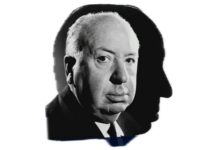Are you having difficulty understanding words in a conversation, or turning up the volume on your TV, or asking people to repeat themselves when speaking to you, or even avoiding conversations and social gatherings?
If so, you are likely suffering from hearing loss. Up to one third of those between the ages of 65 to 75 and one half of those over 75, have some degree of hearing loss.
Hearing loss can occur for a number of reasons:
– Prolonged exposure to loud noise which damages the very sensitive inner ear nerves.
– Earwax which can build up in the ear canal and form a physical barrier blocking sound waves from the inner ear.
– Ruptured eardrum from exposure to an explosive noise, from infection, or from damage such as sticking something in your ear, most commonly a Q-tip.
There are various risk factors leading to hearing loss including:
– Occupational or recreational noise.
– Advancing age.
– Heredity.
– Side effects of some medications.
– Result of infection such as meningitis or measles.
Treatments for hearing loss include:
– Removing earwax when indicated.
– Hearing aids.
– Cochlear implants for more severe hearing loss which involves a surgical procedure.
If you are suffering from hearing loss, I strongly urge you to consider a hearing aid. Many people are reluctant to use hearing aids. This may be due to a perceived negative stigma attached to hearing loss, or to expense, since hearing aids can be expensive and not covered by Medicare or most private insurances. Contrary to these fears, the use of hearing aids can significantly enhance social situations and provide a more enjoyable lifestyle. It may even delay early dementia.
Hearing aid technology has expanded by leaps and bounds over the past decade and there should be a hearing aid that is best suited to your particular hearing loss.
If you are having problems with your hearing make an appointment with a qualified audiologist and have a routine hearing test. From there you may be referred to an ear, nose, and throat doctor for treatment of a specific problem or the audiologist may be able to provide you with an appropriate hearing aid. Don’t put off what may be a life enhancing experience for you.
– Terry Hollenbeck, M.D., is an urgent-care physician at Palo Alto Medical Foundation Santa Cruz in Scotts Valley. Readers can view his previous columns on his website, valleydoctor.wordpress.com, or e-mail him at va**********@*******al.net. Information in this column is not intended to replace advice from your own health care professional. For any medical concern, consult your own doctor.











